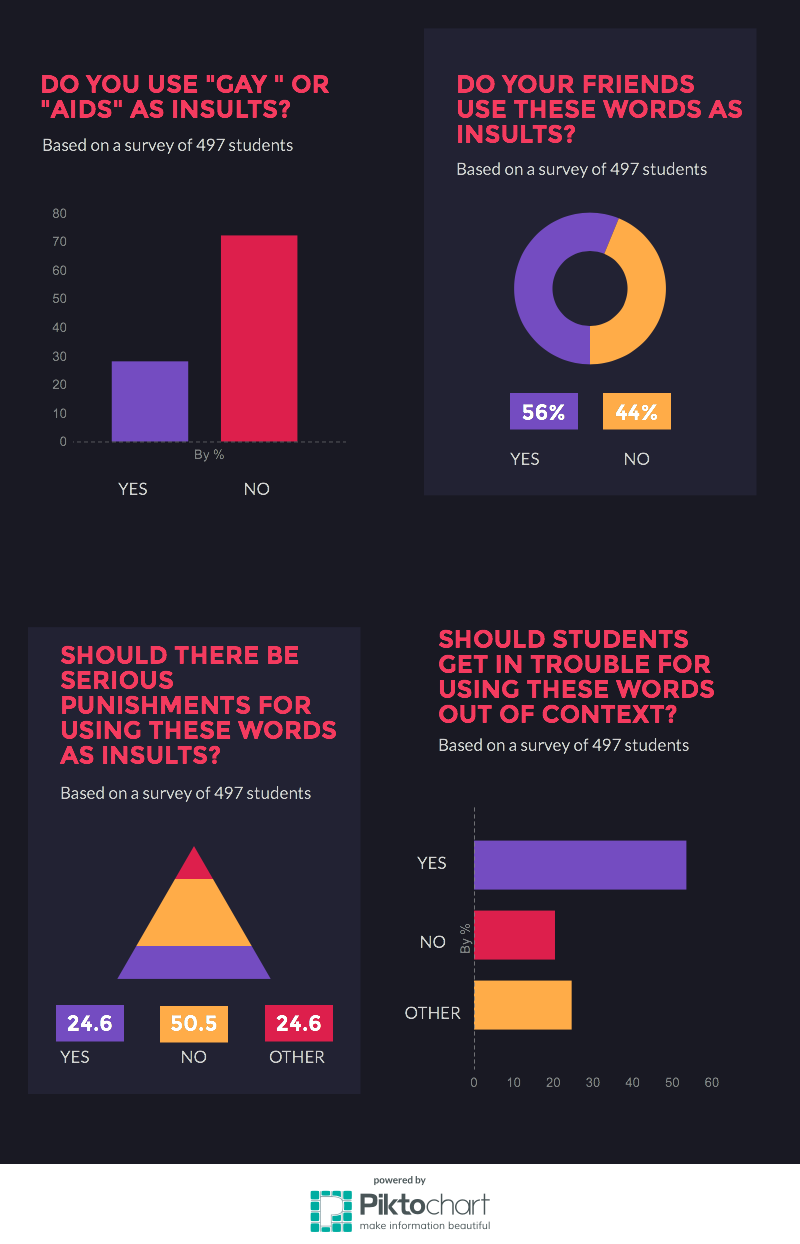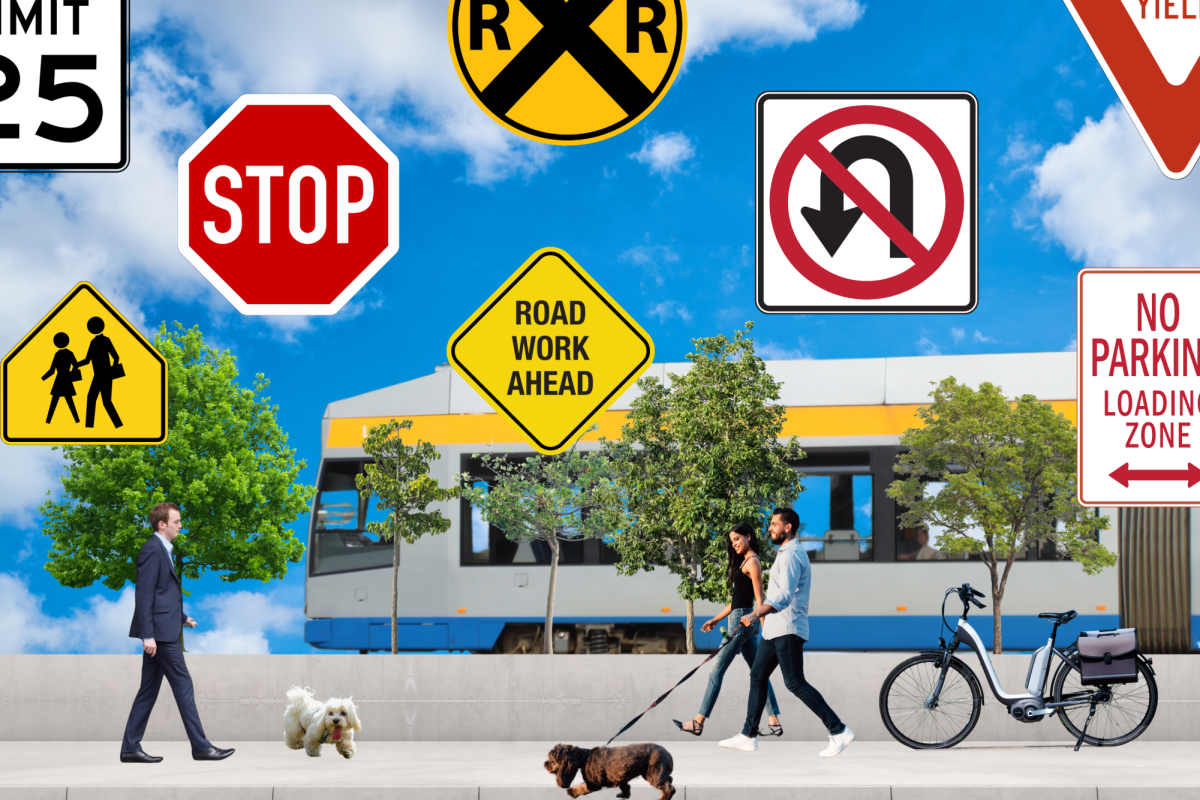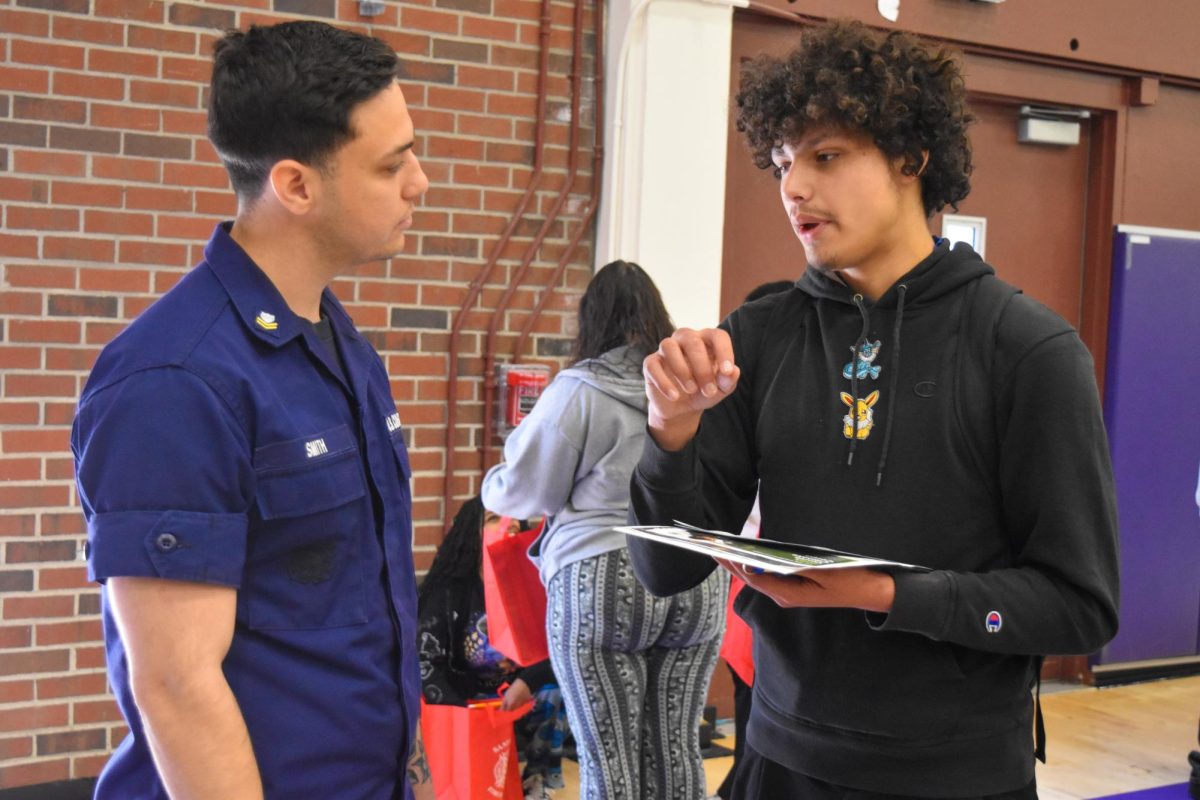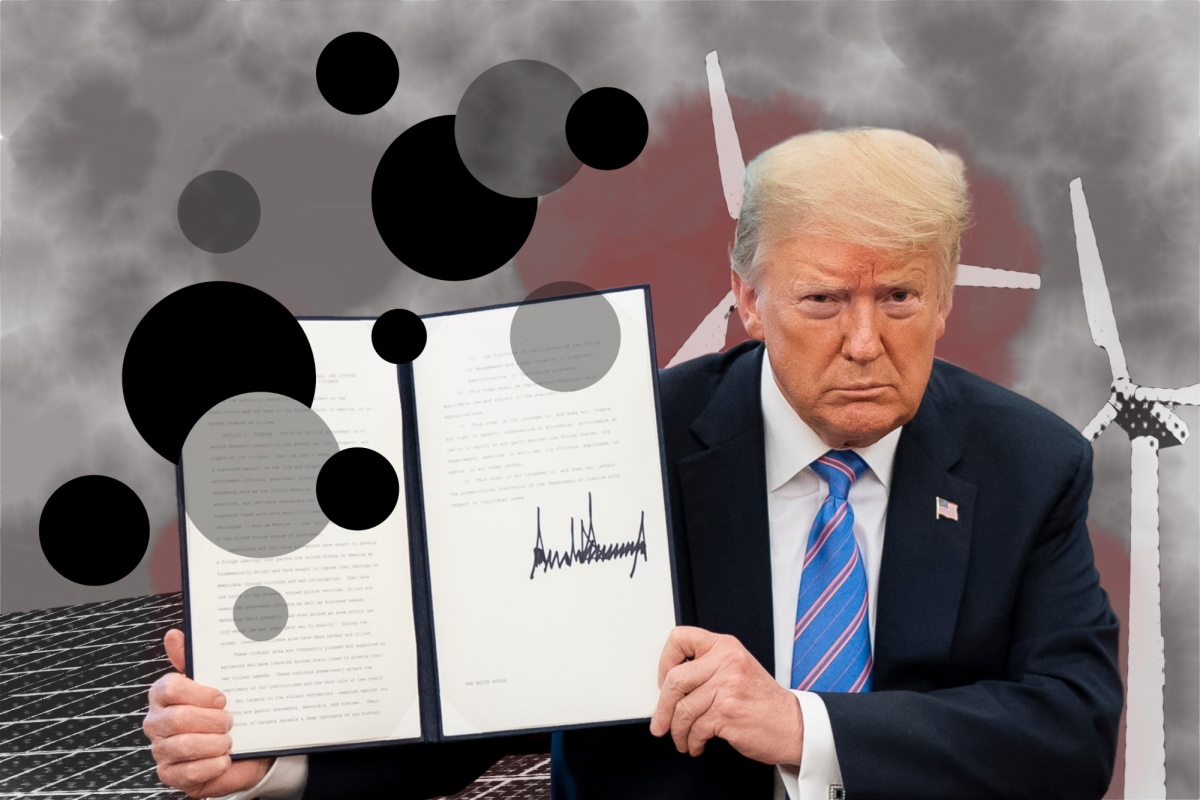hen Student Conduct Liaison Thomas Michaelis hears students using the terms “gay” and “AIDS” to describe “something lame”, he lets them off with a warning first. But he remembers their faces, and if he hears it again from the same student, he brings them to the office.
“They better pick something else,” Michaelis said.
The turn of the century marked a change in principles. According to The Atlantic, coming out and talking about previously taboo topics such as homosexuality and AIDS is becoming more common in today’s culture. According to the National Public Radio, many Americans with college education have a more progressive mindset and are more accepting of coming out or having an disease such as HIV and AIDS. In Cupertino especially, it is becoming more common for students to feel comfortable enough to come out.
Yet even with this growing acceptance, some MVHS students frequently use these words out of context or in an offensive manner that not can offend those around them
 According to a survey of 448 MVHS students and teachers, 54.4 percent of students agreed that verbal abuse that puts down other students should not be tolerated. Despite the fact that more than half of the students surveyed believe that these words are unacceptable, they are still frequently used.
According to a survey of 448 MVHS students and teachers, 54.4 percent of students agreed that verbal abuse that puts down other students should not be tolerated. Despite the fact that more than half of the students surveyed believe that these words are unacceptable, they are still frequently used.
57.4 percent of students at MVHS admitted that their friends use words such as “gay” or “AIDS” as insults to others at our school. Senior Sahiti Shankar voices her opinion on the topic and how she confronts these hurtful remarks.
“When you use ‘gay’ as an insult there’s this implication that being gay is an undesirable trait and it’s really not, and it’s really disappointing to hear people use the word ‘gay’ incorrectly,” Shankar said, “For some people though, it’s uncomfortable to correct their friends because they don’t want to seem like preachy or social justice-y by correcting something like that.”
29.2 percent of MVHS students out of a total of 448* admitted to openly using the words “gay” and “AIDS” as insults. Junior Tim Pai though, talks about his experience using words like these and his reasoning behind it.
“I do say ‘this gives me AIDS’” Pai said. “Are you asking if I agree that people saying these words should be punished? No, because I feel like they don’t know that it’s wrong, and they’re just saying it because everyone else is saying it. I feel like freedom of speech is important, and people can say what they want even if it is really hurtful to others.”
Pai, unlike Shankar, defends the free use of these words, explaining that there are two sides to this debate. He brings up the argument that freedom of speech and freedom of expression are cornerstones of our democratic society. And due to the court case Cohen vs. California (1971), Pai is correct.
But that doesn’t invalidate the opinions of others such as Shankar and Michaelis.
Olive Wu, an advocat of LGBTQ rights, has a very similar stance to Shankar.
“There’s people that actually deal with issues like AIDS and rape or are autistic or are gay” Wu said. “And it’s really kinda demeaning to them”
When Wu was asked if their friends ever say words like these, they had this to reply.
“Friends? No because I cut them out of my life, so they’re people I know.” Wu said. “Because usually those people either one, I’m not comfortable having conversation with them about it and that says something about why I’m being friends with them.”
They differs heavily from both Shankar and Pai because they deal with these problems on a daily basis. Wu identifies as agender, which means that them along with others may take these words offensively. Along with being an avid supporter of LGBTQ+ rights, these words hurt them and others that they are close with.
“What people need to understand is that just because someone uses “gay” as an insult,” Shankar said, “it doesn’t mean they’re homophobic, it just means they need to be educated about how offensive it can be.”













